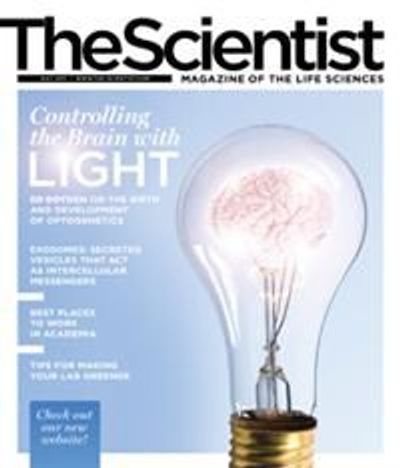 Leaded containers, allowing for the transport of technetium 99m syringes for use in nuclear medicine.JEJECAM / WIKIPEDIA COMMONS
Leaded containers, allowing for the transport of technetium 99m syringes for use in nuclear medicine.JEJECAM / WIKIPEDIA COMMONS
Much of nuclear medicine depends on a steady supply of an isotope called molybdenum-99—“Mo-99” for short. A by-product of nuclear fission, Mo-99 decays to produce another radioactive substance, technetium-99m, which is employed in more than 16 million nuclear imaging procedures every year in the United States alone, including sentinel node biopsies in cancer surgery, bone scans, and cardiac stress tests.
Unfortunately, the supply of Mo-99 and other radioisotopes has been unreliable at best. All of the Mo-99 used in the United States is imported, with the main source being the National Research Universal (NRU) reactor at Chalk River, Ontario. When the reactor shut down for repairs in May 2009, it contributed to a global shortage of radioisotopes. And while NRU has been back in operation since August 2010, it is...
When the reactor shut down for repairs in May 2009, it contributed to a global shortage of radioisotopes.
The unsteady supply of the isotope is already compromising treatment options. For many procedures there’s simply no alternative to Mo-99, and its shortage severely limits doctors’ ability to diagnose and treat many diseases. Physicians are also finding it harder to obtain iodine-131, a radioisotope used to treat thyroid cancer, Graves’ disease, and hyperthyroidism. In this case, CT and PET scanning, which use other radioisotopes, can serve as alternative diagnostic methods, but these procedures have drawbacks ranging from increased cost and greater radiation burden to lower image quality. Clearly, new production strategies are desperately needed.
Some commercial initiatives for generating Mo-99 and other radioisotopes are being developed in order to circumvent reliance on foreign suppliers and on the limited number of available federal and private nuclear reactors and processing facilities in the United States.
Lynchburg, Virginia-based Babcock & Wilcox Technical Services Group (B&W TSG), for example, is using aqueous homogeneous reactors with low-enriched uranium fuel, a process that could potentially supply 50 percent of the US market for Mo-99 (with much less radioactive waste), according to a February 2009 report issued by the Isotope Availability Task Group of the Society for Nuclear Medicine. Production could be staggered and shipping to radiopharmacies calculated so that they receive Mo-99 in a timely fashion. In January 2010, B&W TSG was awarded approximately $9 million by the National Nuclear Security Administration to further develop its patented reactor technology.
At my company, Advanced Medical Isotope Corporation in Kennewick, Washington, we hope to commercialize a proprietary compact Mo-99 production method that involves a meter-long contraption containing heavy water (deuterium oxide) and uranium. Shooting a beam of high-energy electrons at the container produces photons that rip apart deuterium, releasing neutrons that cause uranium to fission, producing substantial quantities of Mo-99.
The 2009 SNM report on isotope availability noted that the University of Missouri Research Reactor Center (MURR) could also potentially meet approximately 50 percent of the current US market need for Mo-99. However, additional funding and an upgrade of MURR’s processing facilities would be required.
Finally, the Annular Core Research Reactor (ACRR) at Sandia National Laboratories could, according to the SNM, potentially produce 100 percent of the US need for Mo-99, but the AACR is currently being used for testing by the Defense Department programs group at the Department of Energy.
Though still in the planning stages, such projects may be able to produce all the Mo-99 physicians could want, as well as a wider variety of other radioisotopes, each with its own specific medical application. Doing so will save tens of millions of dollars for the health-care market, and countless lives, making this a worthy endeavor indeed.
Robert E. Schenter is CSO of Kennewick, WA–based Advanced Medical Isotope Corp. (www.isotope world.com), a company that produces and distributes medical isotopes. He can be reached at info@isotopeworld.com.
Interested in reading more?




